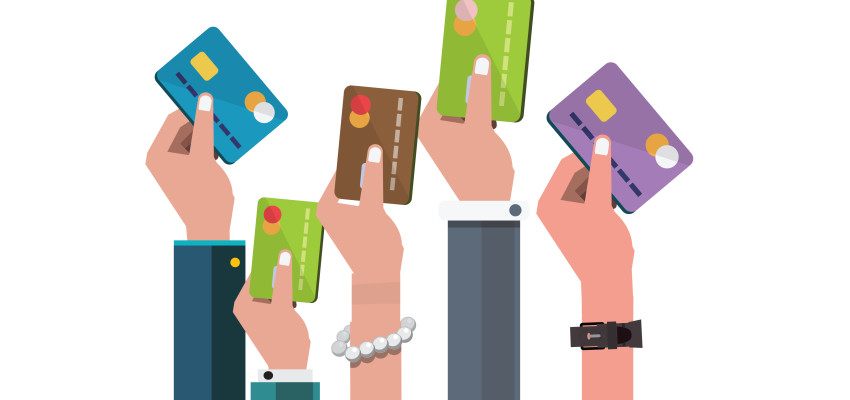By Farm Bureau Financial Services on February 6, 2018
5 times you should (not) pay with your credit card

There’s no doubt using credit cards makes life easier. When everyone from the flower vendor at the local farmers market to the news stand on the corner accepts plastic, why not use your credit card for everyday purchases? With airline miles and cashback offers, credit cards can seem like an ideal way to pay. But the convenience doesn’t always outweigh the potential consequences. Before making your next purchase, consider these five instances when credit may not be your best option.
1. Stay away from unsecure internet sites
You can find so many great deals online, and free shipping makes shopping on your favorite site a no-brainer, right? Before confirming your order, make sure you are shopping on a secure site. The site’s address should start with https:// instead of http:// — the “s” indicates the site is encrypted and secure, so your purchases should be safe from online hackers trying to steal your information.
Another tip for online purchases: take a quick look at the online address. Make sure the site address makes sense, and doesn’t look as though it comes from a foreign address. Unless you are very confident in the online store, it is best to stay away from addresses containing a country code at the end of the online address. Avoid online addresses ending in .ru, .au, .cz or anything else that appears to replace the .com at the end of an address and indicates the website is coming from a foreign vendor.
2. Avoid high-interest payments
You might be tempted to reach for your credit card for those big-ticket purchases. There can be a lot of benefits to charging the TV or a new set of tires, but make sure you have a plan to pay off high-dollar purchases. You should think of your credit card as an unsecured loan, and you pay interest on the balance if you don’t pay it off each month.
A good rule of thumb: if you can’t afford the entire balance, you should be able to pay off half the purchase within a month of making the charge on your card, and have a strategy for paying down the other half of the purchase within six months.
3. Enjoy the night life without your card
If you’re out for drinks with friends, think twice about using your card to pay your bill. In addition to running up a tab that you can’t afford, you may run into an unscrupulous waiter with a skimming device that can be used to steal your card information. It’s always safer to pay cash if there is a chance your card will be out of sight.
4. Escape a rate increase
Have you received a notice about the rates on your card going up? It’s possible that your introductory Annual Percentage Rate (APR) is almost up, but it’s also possible that you are nearing your credit limit on the card. A rate increase is a warning from the credit card company that they’re trying to deter you from using your entire spending limit. Work to pay down your debt before adding more charges to your statement.
5. Build credit history another way
If you are using your credit card to build a positive credit history, consider this: your credit score will improve if you pay off your card each month, but if you carry a balance from month to month, using your credit card could have an adverse effect on your credit score. A credit score is a prediction about how likely you are to pay your bills based on your history of using credit responsibly. This is especially important to keep in mind if you plan to apply for a mortgage within the next six to 12 months.
Credit cards can make life easier, especially when used responsibly. Using these tips, you can avoid some common pitfalls and your credit card can be a useful tool. And if you’re worried that your card numbers may be at risk, consider adding ID Theft Protection to your homeowners insurance for an added layer of security.

